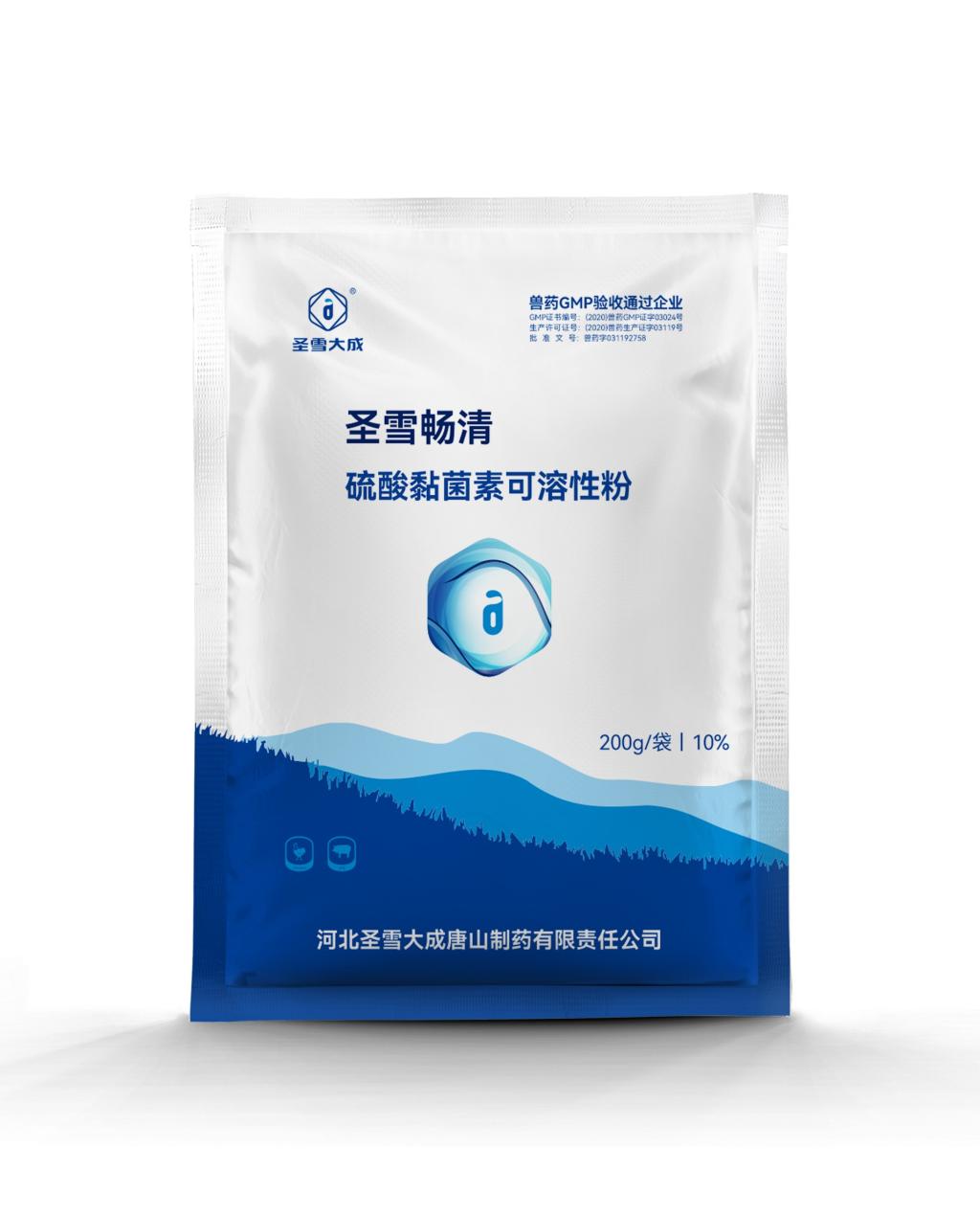Tel:+8618231198596

News
 CONTACT
CONTACT
 CONTACT
CONTACT
- Linkman:Linda Yao
- Tel: +8618231198596
- Email:linda.yao@dcpharma.cn
- Linkman:CHARLES.WANG
- Department:Overseas
- Tel: 0086 0311-85537378 0086 0311-85539701
News
Navigating Challenges: Colistin Sulfate Soluble Powder in Farming.
TIME:2024-01-03
Historical Perspective:
Colistin, discovered in the 1940s, belongs to the polymyxin class of antibiotics. Initially employed in human medicine, its use diminished over time due to concerns about nephrotoxicity and the availability of safer alternatives. However, a resurgence occurred in the agricultural sector, particularly in livestock farming, where colistin sulfate became a popular choice for disease prevention and growth promotion.
Applications in Livestock Farming:
a. Disease Prevention:
Colistin sulfate is commonly used in the prevention and treatment of bacterial infections in livestock, such as poultry, pigs, and cattle. Its broad-spectrum antimicrobial activity makes it effective against various bacterial strains.
b. Growth Promotion:
In addition to its therapeutic uses, colistin sulfate has been employed as a growth promoter in animal feed. Subtherapeutic doses are administered to enhance weight gain and feed efficiency in livestock, contributing to increased productivity.
Antibiotic Resistance Concerns:
a. Development of Resistance:
The indiscriminate use of antibiotics in agriculture raises concerns about the development of antibiotic-resistant bacteria. Colistin is especially significant due to its role as a last-resort antibiotic for treating multidrug-resistant infections in humans.
b. Transfer of Resistance Genes:
The potential transfer of resistance genes from livestock to human pathogens through various routes, including the food chain and environmental contamination, poses a serious public health risk. This transfer may compromise the effectiveness of critical antibiotics in treating human infections.
Global Health Implications:
a. Emergence of MCR-1 Gene:
The discovery of the MCR-1 gene in bacteria from animals and food sources marked a turning point. This gene confers resistance to colistin and can be transmitted between bacterial species, exacerbating concerns about the global spread of colistin resistance.
b. Human Health Impact:
Resistant bacteria that emerge in livestock settings can be transmitted to humans through direct contact, consumption of contaminated food, or environmental exposure. Infections caused by colistin-resistant bacteria are challenging to treat and pose a significant threat to human health.
Regulatory Responses and Restrictions:
a. Global Efforts:
Recognizing the severity of antibiotic resistance, global health organizations and regulatory bodies have taken steps to address the use of colistin in agriculture. The World Health Organization (WHO) has classified colistin as critically important for human medicine, emphasizing the need for responsible use.
b. Restrictions in Agriculture:
Several countries have implemented or proposed restrictions on the use of colistin in agriculture. These measures aim to curtail the development and spread of antibiotic resistance, protecting both animal and human health.
Alternatives and Sustainable Practices:
a. Probiotics and Prebiotics:
The search for alternatives to antibiotics in agriculture has gained momentum. Probiotics and prebiotics are being explored as potential substitutes, promoting animal health and growth without the risks associated with antibiotic use.
b. Improved Farm Management:
Enhancing farm management practices, including biosecurity measures, proper sanitation, and vaccination programs, can contribute to reducing the reliance on antibiotics. Integrated approaches that prioritize animal welfare and health are crucial for sustainable and responsible farming.
Education and Awareness:
a. Farmer Education:
Educating farmers about responsible antibiotic use, the risks of antibiotic resistance, and alternative practices is essential. Empowering farmers with knowledge and tools to make informed decisions contributes to a culture of responsible antibiotic stewardship.
b. Consumer Awareness:
Consumer awareness plays a pivotal role in driving demand for sustainably produced and responsibly sourced food. Transparent labeling and communication about antibiotic use in animal agriculture can influence consumer choices and support a shift towards responsible farming practices.
Research and Innovation:
a. Development of New Antibiotics:
Investment in research and development of new antibiotics with improved safety profiles and reduced impact on resistance is crucial. Innovations in antimicrobial discovery and development are essential for addressing the evolving challenges in both human and veterinary medicine.
b. Advanced Diagnostics:
Advanced diagnostic tools that enable rapid identification of bacterial infections and guide targeted antibiotic therapy contribute to more precise and effective treatment, minimizing the need for broad-spectrum antibiotics like colistin.
Global Collaboration:
Addressing the challenges associated with colistin use in farming requires international collaboration. Cooperation between governments, researchers, healthcare professionals, and the agriculture industry on a global scale is necessary to develop and implement effective strategies for antibiotic stewardship.
Conclusion:
The challenges posed by colistin sulfate soluble powder in farming underscore the urgent need for responsible practices and a paradigm shift in how antibiotics are used in agriculture. As global awareness of the risks associated with antibiotic resistance grows, concerted efforts from stakeholders across the food supply chain are essential. By embracing sustainable alternatives, implementing stringent regulations, fostering education, and investing in research and innovation, the agriculture industry can navigate the challenges posed by colistin sulfate and contribute to a future where farming practices align with global health priorities and the principles of responsible antibiotic stewardship.
- Tel:+8618231198596
- Whatsapp:18231198596
- Chat With Skype







